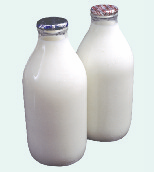Diet Advice
Most renal patients have special dietary requirements. These will vary from sensible healthy eating and drinking in early stage kidney disease through to signification limitations on food and fluids in end-stage renal failure.
What do kidney dietitians look at in my diet?
Energy
Energy is important so that you can carry out your daily activities. Most of your energy (calories) should come from starchy carbohydrates, such as cereal, bread, potatoes, rice, noodles, pasta, cassava and yam. You should have at least one of these foods in every meal.
Protein
Protein is needed for growth and repair of muscle tissue. The richest sources of protein are animal protein foods such as meat, poultry, fish, yoghurt, eggs, cheese and milk. Vegetable protein foods include nuts, pulses (beans and lentils), tofu, Quorn and soya chunks/mince.
Fat
Eating less fat can help reduce your risk of heart disease and prevent you from becoming overweight. Saturated (bad) fats are found in butter, cheese, fatty meats, biscuits, cakes and pastries. Unsaturated (good) fats are found in olive oil, rapeseed oil, sunflower oil and spread made with these oils. Remember, all fats are high in energy so, if you are watching your weight, you need to limit all the fats that you eat. However, if you have a small appetite,fat is a good source of energy.


